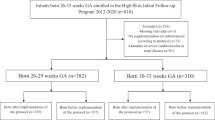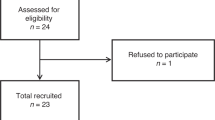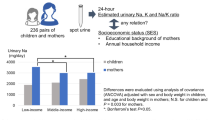Abstract
Extract: Late hyponatremia (plasma Na+ <130 mEq/liter) occurred frequently (on 54 of 159 occasions) in 46 very low birthweight (VLBW) infants (<1.3 kg at birth) between 2 and 6 weeks of age while receiving a sodium intake of ≤2 mEq/kg/24 hr. To elucidate possible pathogenetic mechanisms five groups of such infants were studied while receiving a commercially available formula reconstituted to give two different volumes and two different Na+ concentrations. Sodium intake in the nonsupplemented (NS) infants (n = 23) was less than 2 mEq/kg/24 hr. Supplemented (S) infants (n = 16) received approximately 3 mEq Na+/kg/24 hr. A further group of seven infants given a high volume (200 ml/kg/24 hr), high caloric (100 cal/dl) formula and Na+ supplementation (to 3 mEq/kg/24 hr) was also included. Infants were studied from age 14 days until they weighed 1.80 ± 0.05 kg at a mean age of 47 days.
At the time of start of the study, 6 of 20 NS and 6 of 19 S infants were hyponatremic. After supplementation only two episodes of hyponatremia occurred in S infants, both during the first study week, whereas the high incidence of hyponatremia in NS infants remained unchanged throughout the first 3 weeks of the study period.
During baseline urine collections all infants excreted between 80 and 100 ml/kg/24 hr urine, but those receiving 150 ml/kg/24 hr formula decreased their urinary output rapidly to 50 ml/kg/24 hr, whereas infants receiving high volume feeds (200 ml/kg/24 hr) did not decrease their urinary output until the third balance at an average age of 45 days. All infants excreted between 1.0 and 1.2 mEq/kg/24 hr of sodium in their urine during the initial collection. Nonsupplemented infants reduced their urinary Na+ excretion more rapidly than supplemented babies (NS: from 1.03 to 0.55 mEq/kg/24 hr, first vs second balance; S: from 1.00 to 0.80 mEq/kg/24 hr, first vs third balance). Mean potassium excretion remained unchanged in NS and S infants during the study period and was not affected by the volume or caloric content of the formula.
Extracellular volume (ECV) and total body water (TBW) were measured serially, and there were no differences between S and NS infants in the distribution of body water. The percentage of TBW and ECV decreased in all groups with increasing postnatal age.
Speculation: VLBW infants are prone to hyponatremia in the first 6 weeks of life because of the combined influence of renal immaturity, which permits relatively high urinary sodium loss in the presence of low plasma [Na+], and low intake of sodium (≤2 mEq/kg/24 hr), the amount provided by some current formulas based on breast milk. Dilutional factors are not involved, but the role of aldosterone remains unresolved. Supplementation of the formula to provide a daily total sodium intake of 3 mEq/kg/24 hr until a weight of 1.5 kg is reached is corrective.
Similar content being viewed by others
Log in or create a free account to read this content
Gain free access to this article, as well as selected content from this journal and more on nature.com
or
Author information
Authors and Affiliations
Rights and permissions
About this article
Cite this article
Roy, R., Chance, G., Radde, I. et al. Late Hyponatremia in Very Low Birthweight Infants (< 1.3 Kilograms). Pediatr Res 10, 526–531 (1976). https://doi.org/10.1203/00006450-197605000-00004
Issue date:
DOI: https://doi.org/10.1203/00006450-197605000-00004
Keywords
This article is cited by
-
Sodium or chloride deficiency lowers muscle intracellular pH in growing rats
Pediatric Nephrology (1996)
-
Body electrolytes in bronchopulmonary dysplasia and the effects of diuretic therapy
The Indian Journal of Pediatrics (1994)
-
Fecal sodium and potassium losses in low brith weight infants
The Indian Journal of Pediatrics (1993)
-
Endogenous factors with immunological and biological activity similar to cardiac glycosides: Biochemical and pathophysiological implications
Journal of Endocrinological Investigation (1992)
-
The effect of sodium repletion on growth and protein turnover in sodium-depleted rats
Pediatric Nephrology (1991)



